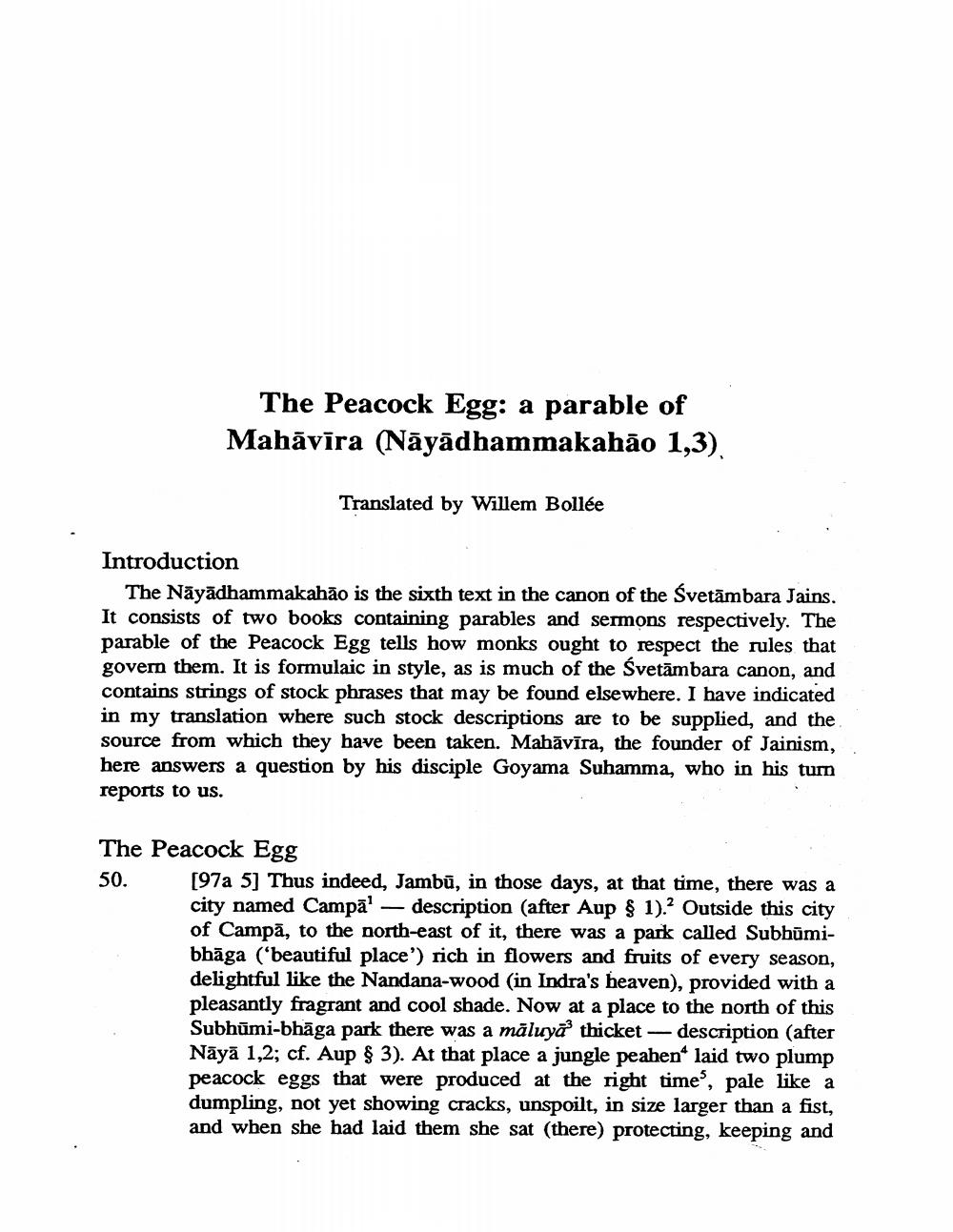________________
The Peacock Egg: a parable of Mahāvīra (Nāyādhammakabão 1,3).
Translated by Willem Bollée
Introduction
The Nāyādhammakahāo is the sixth text in the canon of the Svetāmbara Jains. It consists of two books containing parables and sermons respectively. The parable of the Peacock Egg tells how monks ought to respect the rules that govern them. It is formulaic in style, as is much of the Svetāmbara canon, and contains strings of stock phrases that may be found elsewhere. I have indicated in my translation where such stock descriptions are to be supplied, and the source from which they have been taken. Mahāvīra, the founder of Jainism, here answers a question by his disciple Goyama Suhamma, who in his turn reports to us.
The Peacock Egg 50. [97a 5] Thus indeed, Jambū, in those days, at that time, there was a
city named Campā! — description (after Aup $ 1)? Outside this city of Campā, to the north-east of it, there was a park called Subhūmibhāga ('beautiful place') rich in flowers and fruits of every season, delightful like the Nandana-wood (in Indra's heaven), provided with a pleasantly fragrant and cool shade. Now at a place to the north of this Subhūmi-bhāga park there was a māluya thicket - description (after Nāyā 1,2; cf. Aup $ 3). At that place a jungle peahen“ laid two plump peacock eggs that were produced at the right time', pale like a dumpling, not yet showing cracks, unspoilt, in size larger than a fist, and when she had laid them she sat (there) protecting, keeping and




